Related Research Articles
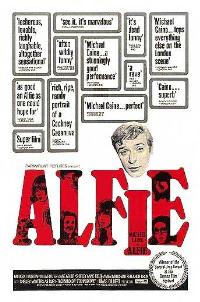
Alfie is a 1966 British comedy-drama film directed by Lewis Gilbert and starring Michael Caine. The Paramount Pictures release was adapted from the 1963 play of the same name by Bill Naughton. Following its premiere at the Plaza Theatre in the West End of London on 24 March 1966, the film became a box office success, enjoying critical acclaim, and influencing British cinema.

The Matchmaker is a 1954 Broadway play by Thornton Wilder, a rewritten version of his 1938 play The Merchant of Yonkers.

Denholm Mitchell Elliott was an English actor. He appeared in numerous productions on stage and screen, receiving BAFTA awards for Best Actor in a Supporting Role for Trading Places (1983), A Private Function (1984) and Defence of the Realm (1986), and a nomination for the Academy Award for Best Supporting Actor for his portrayal of Mr. Emerson in A Room with a View (1985). He is also known for his performances in Alfie (1966), A Doll's House (1973), A Bridge Too Far (1977), Maurice (1987), September (1987), and Noises Off (1992). He portrayed Marcus Brody in the Steven Spielberg and George Lucas films Raiders of the Lost Ark (1981) and Indiana Jones and the Last Crusade (1989).

Hugh Emrys Griffith was a Welsh actor. Described by BFI Screenonline as a "wild-eyed, formidable character player", Griffith appeared in over 100 theatre, film, and television productions in a career that spanned over 40 years. He was the second-ever Welsh-born actor to win an Academy Award, winning a Best Supporting Actor Oscar for his role in Ben-Hur (1959), with an additional nomination for Tom Jones (1963).

Peter Woodthorpe was an English actor who supplied the voice of Gollum in the 1978 Bakshi version of The Lord of the Rings and the BBC's 1981 radio serial. He also provided the voice of Pigsy in the cult series Monkey and played Max, the pathologist, in early episodes of Inspector Morse.

Alfie is a 2004 American romantic comedy-drama film inspired by the 1966 British film of the same name and its 1975 sequel, starring Jude Law as the title character, originally played by Michael Caine in the 1966 film and Alan Price in the 1975 sequel. The film was co-written, directed, and produced by Charles Shyer.

William John Francis Naughton was an Irish-born British playwright and author, best known for his play Alfie.
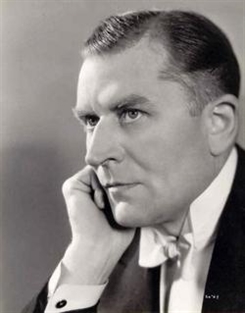
Malcolm Keen was an English actor of stage, film and television. He was sometimes credited as Malcolm Keane.
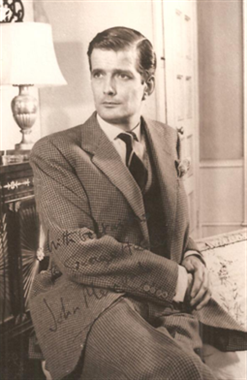
John Herman Merivale was a Canadian-born British theatre actor, and occasional supporting player in British films.

Barry Cuthbert Jones was an actor seen in British and American films, on American television and on the stage.

Julia Foster is an English stage, screen, and television actress.
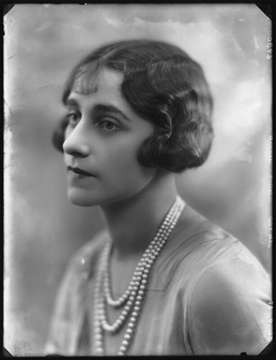
Alison Joy Leggatt was an English character actress.
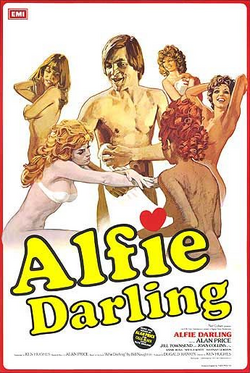
Alfie Darling is a 1975 British comedy-drama film written and directed by Ken Hughes, based on the 1970 novel of the same name by Bill Naughton. It is the sequel to the film Alfie (1966), with Alan Price taking over Michael Caine's role of Alfie. Price also penned the title song. The film premiered at the Universal Cinema in London on 6 March 1975.

Semi-Detached is a play written by David Turner. It premiered at the Belgrade Theatre, Coventry in June 1962 with Leonard Rossiter in the lead role, the production was directed by Tony Richardson. In 1964, the BBC recorded a radio adaptation starring Rossiter, rebroadcast in 2016 in its series Repertory in Britain. The Belgrade Theatre production transferred to London, still directed by Richardson, but with Laurence Olivier, Eileen Atkins, John Thaw, James Bolam and Mona Washbourne. The play reached Broadway in New York for a season in 1963 and a film version All the Way Up (1970), directed by James MacTaggart, starred Warren Mitchell. The play was revived at the Chichester Festival in 1999.

Colin Keith-Johnston was a British actor.

Edward Atienza was a British stage and film actor. He made his first London theatre appearance in the role of Mole in Toad of Toad Hall at the Prince's Theatre.

Frederick Leister, was an English actor. He began his career in musical comedy and after serving in the First World War he played character roles in modern West End plays and in classic drama. He appeared in more than 60 films between 1922 and 1961.
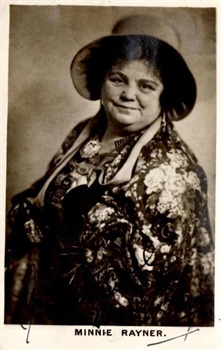
Minnie Rayner was a British stage and film actress.
Brewster Mason was an English stage actor who also appeared in films and on television.

All in Good Time is a comic play by Bill Naughton based on his 1961 Armchair Theatre television play "Honeymoon Postponed". Originally produced at the Mermaid Theatre in 1963 in London, it subsequently transferred to the Phoenix Theatre, and then to Broadway, where it ran for 44 performances in February and March 1965. The Broadway cast included Donald Wolfit, Marjorie Rhodes and Richard Dysart. It received Tony Award Best Actress and Best Featured Actress nominations for Marjorie Rhodes and Alexandra Berlin.
References
- 1 2 Collins, Glenn (11 January 1992). "Bill Naughton, 81, a British Playwright Who Created 'Alfie'". The New York Times. Retrieved 19 June 2012.
- 1 2 "Production of Alfie - Theatricalia". theatricalia.com.
- 1 2 League, The Broadway. "Alfie! – Broadway Play – Original - IBDB". www.ibdb.com.
- 1 2 3 French, Philip (24 October 2004). "Alfie". The Observer. Retrieved 11 December 2020.
- 1 2 Marwick, Arthur (1998). The Sixties: Cultural Revolution in Britain, France, Italy, and the United States, c.1958-c.1974. Oxford & New York City: Oxford University Press. p. 139.
- ↑ Caine, Michael (1992). What's It All About. London: Arrow Books. p. 215. ISBN 9780099553199.
- ↑ Murphy, Robert (2015) [1992]. Sixties British Cinema. London: Bloomsbury. p. 143. ISBN 9781838718251.
- 1 2 3 Elsom, John, ed. (2014) [1981]. Post-War British Theatre Criticism. London: Routledge. pp. 119–120. ISBN 9781317557517.
- ↑ Nicholson, Steve (2015). The Censorship of British Drama 1900–1968 Volume 4: The Sixties. Exeter: University of Exeter Press. pp. 169–170. ISBN 9780859899888.
- ↑ Gardner, Lyn (27 January 2012). "Alfie – review". The Guardian. Retrieved 11 December 2020.